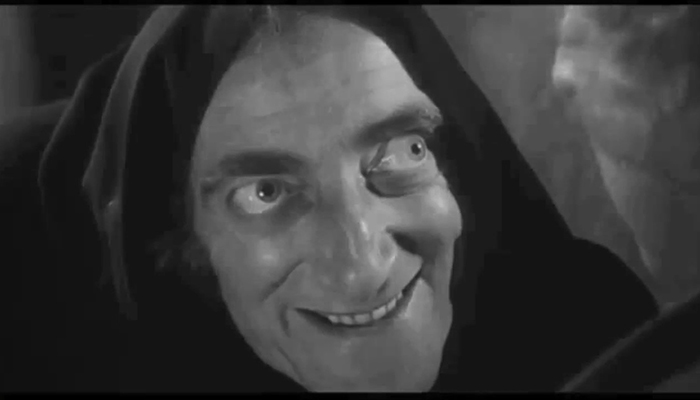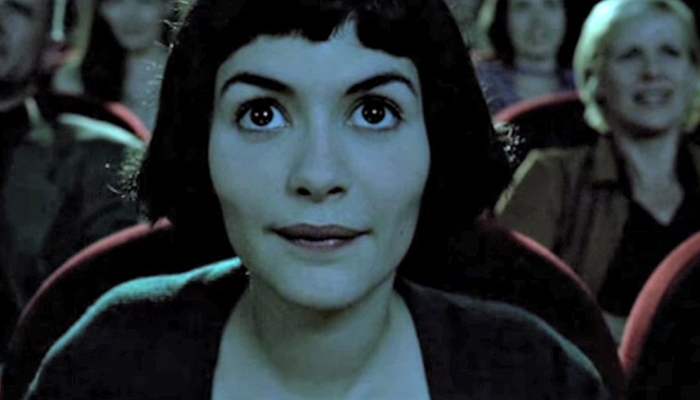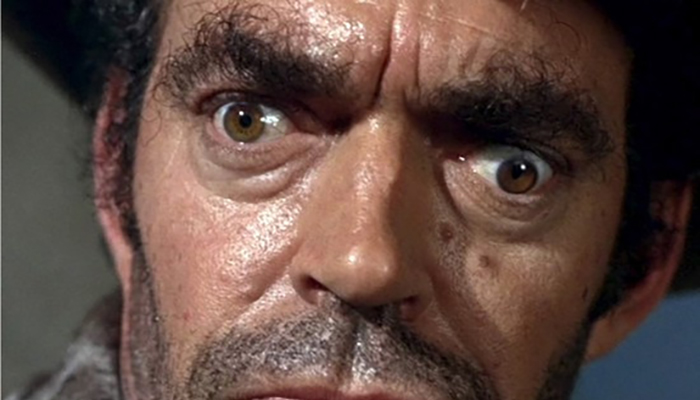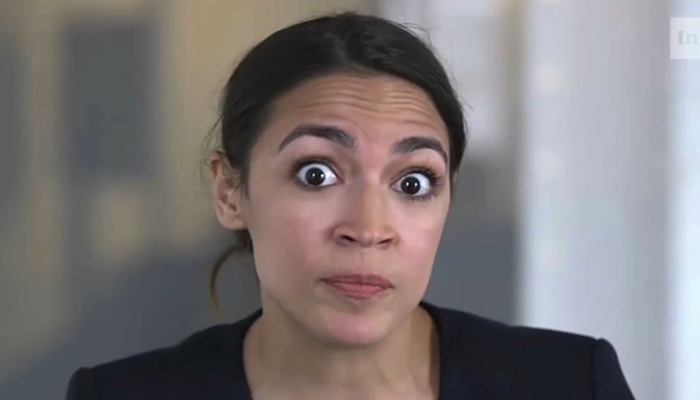THB #93: The Batman (no spoilers)
| March 6, 2022
It was Bill Condon who coined the phrase, “The Great Settling.” And I have used it every year since I heard it. Because even in a shortened season —perhaps more so — there is a point at which the power to try to convert voters disappears from the efforts of the often-brilliant salespeople (whatever their budget) and and film pundits (whatever their skill level) and everything falls to the most appropriate sales tool there is… the movies themselves.
The greatest whine of film publicists in award season was, forever, that getting voters to see the movies was a profound challenge. Same with film writers who bagged for a longer award season so they could find time to see movies. But… bullshit.
The only thing that has truly suffered in this short season — aside from massive ad buys, shortened by a few weeks, but mostly made up for by early launches — is the Oscar Industrial Complex. But no one is or should be assured of Oscar creating windows for everyone else’s convenience.
I am sympathetic to the arguments made by New York Film Critics Circle and Los Angeles Film Critics Association that their events are connected to other events and they need time to put their dinners together. But… on the other hand… more bullshit. Is the purpose of these critics groups to organize a dinner or to honor the best of the year? I fully understand that the place on the ecosystem timeline allows these awards to, perhaps, have some influence on Oscar. But neither group is remotely interested in admitting that they care about that potential influence. And yet, they live within the Complex, which includes erasing nearly a month from the calendar in determining their judgments about the year.
Every part of the Oscar Industrial Complex adjusts to whatever circumstance occurs. It is the nature of the beast. It is the nature of marketing. The movies are the movies. They aren’t changing. (Unlike Judy Dench’s human hand, being removed from Cats, though not a single critic mentioned this flaw in the film until it was made an issue because Universal is shipping a corrected version of the film to theaters.) The distributors, who decided in the spring and early summer to run them in the Oscar race, adjust to the film. Some sell the movie they have. Some sell the movie they wish they have. Same as every other film they market, though without the extra budget push, small or huge, that comes with an award chase.
The decision about when to release these films is also just that… a decision. There are no firm rules. Everything is strategy. At least, until it becomes all tactical. There are good reasons to release awards films in August or October or November. If you release an “awards film” in September, it is probably not really an awards film… at least not for Best Picture contention. There are flawed strategic choices every season. And there are bad strategic choices that are successfully overcome every season.

There is some settling in the Thanksgiving weekend, though there are also still films being served up fresh. This next 10 days, through January 1, features a shutdown industry, family, vacations, and DVD screeners creating their own popularity contest in homes, rental and otherwise, across the globe. Distributors haven’t figured out how to sell to awards movies to middle-aged children of voters and grandchildren who have strong opinions, but those people often have more real influence on voter opinions than dinner and a handshake from Martin Scorsese.
In this shorter season, the voting is beginning later than in years. January 2. In years past, in great part because of hard ballots, ballots went out before Christmas and often were sent in before New Years. Not so this year.

So does all the talk about Parasite help? If it gets the disc into the machine. Are the younger family members going to get the oldsters past the first five minutes of Jojo Rabbit? Will they watch The Farewell? How does 1917 play on a fifty-inch screen? How many times do the young ones watch Little Women or Uncut Gems or Joker over these next 10 days?
Netflix has, I think, an evolving win/loss scenario during The Great Settling. Yes, in virtually every voting household, Netflix will be on during the next 10 days… absolutely. So there is a platform for The Irishman, Marriage Story, The Two Popes and Dolemite Is My Name that is even more attractive to voters than streaming apps available from some studios. You’re already going there. You don’t need to download a new app and put in a code.
BUT… now that Netflix has legitimized themselves in this arena with the unintentional help of Steven Spielberg, who did the company a massive favor by going on the attack and then backing off like a whipped dog, they face an unexpected problem. Familiarity. Which sometimes breeds contempt, fairly or not.
I don’t think I have spoken to anyone who watched The Irishman on Netflix or who has chosen not to watch it yet who hasn’t mentioned the length and (for the viewers) how many breaks they took while watching it. Some have loved it. Others not. But my thought here is to question how they value the film, which will be a key when it comes to the final voting.
This brings up another angle on all of this… that a handful of movies are really fighting the next round already, with all of us who follow Oscar assuming they are set with nominations. Those would be the Tarantino, two of the Netflix titles, and 1917. Also assumed in, but not quite as uber-locked, are Jojo Rabbit and Parasite.

Locked or not, there isn’t much that any of these seven well-marketed films can do to change anything about the nominations voting at this point. There are still voters who haven’t seen every one of them. And there, there is a weird advantage to the less locked films in that they can still be truly surprising to reluctant viewers. No matter how much you love The Irishman, it’s not really in a position to surprise anyone that way. (“It was so much shorter than I expected!”) But watching Parasite late in the game and being surprised that the Korean-language of the film doesn’t keep you from loving the movie is a double win for that film, similar to people who have heard Jojo Rabbit is offensive in some way discovering that —in their view — it is not. There is a reason that being the frontrunner since September is problematic… people like change agents. Of course, Netflix has an option for those folks too, in The Two Popes.
So this next 10 days are critical for Jojo Rabbit and Parasite and Little Women and Ford v Ferrari and Bombshell and The Two Popes and any other film hoping to squeeze into the 8 or 9 Best Picture nominees. (To the degree that Joker is in contention for Best Picture, I think its voters are already locked down.) And there really isn’t anything that anyone can do to change their Oscar futures.

Seven movies. Four or Five slots. Simple, If any of the other hopefuls (Dolemite Is My Name, The Farewell, Knives Out, Uncut Gems, Just Mercy) somehow get in, God bless them and we can discuss how that happened then. They all have passionate followings and if they not only get enough votes, but get enough of them high enough on their ballot to overcome the 7 movies that, logically, are in front of them, that will be a great achievement indeed. And if they don’t, they will still be beloved for many years to come.

The Great Settling is all about comfort, like the armchairs and couches on which we watch the movies.
One last thought, that is really specific to this season. It’s hard to separate out the deepest passions of this season. Every movie has strong arguments for and against. None of the journeys have been particularly surprising so far (except for the potential of Parasite as a foreign-language film).
This is exactly the kind of season that seems, likely to end with The Default Choice winning. But what is The Default Choice this season? I find myself comparing this season to the season of the The Departed win. But that was not The Default Choice. In many ways, it pushed hard against expectations. Spotlight was a classic Default win. Birdman, too. They checked most of the boxes but people were hoping some other film would come along and demand to beat them… and nothing did.

Some people think The Irishman is The Default Choice this year. I don’t. Ford v Ferrari seemed the sure bet to be The Default Choice this season… but it lost steam in the middle of Telluride and somehow has never recovered what still seems obvious to me. I didn’t think it was Once Upon A Time … in Hollywood either. But I am beginning to think I may be wrong. It may be 1917, which has a great performance and excellent cameos, but isn’t really an actors’ movie. But, it is the most broadly emotional experience. And latecomer The Two Popes could turn into The Default Choice. But it may really be too late and miss getting nominated for Picture altogether.
But as I type and the movies create The Great Settling over these next 10 days, an unexpected wave could be starting that is, as of yet, impossible to read.
Kowabunga, dudes and dudettes!

-30-
May 1, 2022

"Netflix, the great disrupter whose algorithms and direct-to-consumer platform have forced powerful media incumbents to rethink their economic models, now seems to need a big strategy change itself. It got me thinking about the simple idea that my film and TV production company Blumhouse is built on: If you give artists a lot of creative freedom and a little money upfront but a big stake in the movie’s or TV show’s commercial success, more often than not the result will be both commercial (the filmmakers are incentivized to make films that will resonate with audiences) and artistically interesting (creative freedom!). This approach has yielded movies as varied as Get Out (made for $4.5 million, with worldwide box office receipts of more than $250 million), Whiplash (made for $3.3 million, winner of three Academy Awards), The Invisible Man (made for $7 million, earned more than $140 million) and Paranormal Activity (made for $15,000, grossed more than $190 million).From the beginning, the most important strategy I used to persuade artists to work with me was to make radically transparent deals: We usually paid the artists (“participants” in Hollywood lingo) the absolute minimum allowable by union contracts upfront, with the promise of healthy bonuses based on actual box office results—instead of the opaque 'percentage points' that artists are usually offered. Anyone can see box office results immediately, so creators don’t quarrel with the payouts. In fact, when it comes time for an artist to collect a bonus based on box office receipts, I email a video clip of myself dropping the check off at FedEx to the recipient."
Jason Blum Sees Room For "Scrappier" Netflix
| April 30, 2022

"As a critic Gavin was entertaining, wry, questioning, sensitive, perceptive"
Critic-Filmmaker Gavin Millar Was 84; Films Include Cream In My Coffee, Dreamchild
April 29, 2022

| January 24, 2022
DP/30 Audio: Bombshell, Jay Roach
| December 13, 2019
DP/30 Audio: The Last Black Man in San Francisco, Jonathan Majors
| December 4, 2019
DP/30 Audio: The Mustang, Laure de Clermont-Tonnerre
| December 4, 2019
I’m going to call 1917 as the default choice and the winner. Big applause last night at the public screening I attended. Won’t get acting nominations, but neither did THE LAST EMPEROR.
Saw the trailer for 1917 last night, and it was driving me nuts where I’d seen that one kid — Tommen Baratheon (Dean-Charles Chapman).